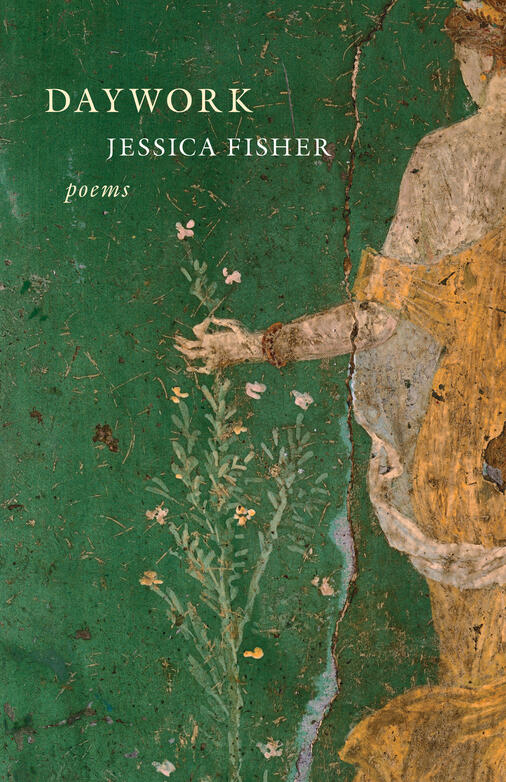You’ll never knowwhat became of mein the dark, howmy body opened, towhat or to whom.There, the moonshone with the sun’sreflected lightand the stars, hiddenby day, blinked theirshy hellos. The longdays of summer, withits great foliage, itsflocks and herds,had erased the desireto be a self alone.Sometimes on the busI felt like a stowawayin other lives,looking into the soulof each passenger.How, you ask? given thatthe soul, if it exists,cannot be seen, islike the bird hiddenin the bush, theair you breathe. Youtake it in nevertheless.I studied their hands,the laborers headed home,kids on their wayout for the night. Beneaththe skin, the riverwaysthat lead to the heart.I caught their eyes,held them there awhile.There was no oneI could not love.When the wind clatteredthrough the oak trees,and the last milkweedseeds clung to thewire screen, and thecrickets sang their wildsong at nightfall, Ithought everything wassaying goodbye, that Ishould listen more closely.I wanted to throwthe window opento that cold, take inwhatever was left outside.The leaves of the aspenalready so few, thoughthey are not lonely,and in the ravinea net stretched wideto catch the saw-whetowls in their migration.There in the moonlightI saw one shining,lured to the snareby its own callplayed back. Later,under black light, I feltthe rapid heart beatingin my hands, spreada wing to tell its age,the dun feathers fluorescingthe color of sunriseor sunset, the breastsoft as milkweed tufts.Weighed and banded andthen let go, it flew backinto its anonymous life.It had survived capture,was ready to hunt.The night was darkas the future, andvery cold. It droveus inside, but somethingstayed with us ofthat strange kind,their eyes like citrine,their few ouncesnonetheless weight enoughto hold a heart.
Feature Date
- February 19, 2024
Series
Selected By
Share This Poem
Print This Poem
“Night Song” from DAYWORK: by Jessica Fisher.
Published by Milkweed Editions on March 19, 2024.
Copyright © 2024 by Jessica Fisher.
All rights reserved.
Reproduced by Poetry Daily with permission.

Jessica Fisher is the author of three books of poetry: Frail-Craft, which won the 2006 Yale Younger Poets Prize, Inmost, which was awarded the 2011 Nightboat Poetry Prize, and Daywork, published by Milkweed Editions in 2024. Her poems appear in such journals as The American Poetry Review, The Believer, The Bennington Review, The New Yorker, Tin House, and The Yale Review, and her translations have been published in The New York Review of Books and The Paris Review. She is the grateful recipient of honors including the 2013 Rome Prize, a Holloway Postdoctoral Fellowship in Poetry, and a Hellman Foundation Fellowship. She is an associate professor of English at Williams College and lives with her family in Western Massachusetts.
“How stunning this book of poems—exquisitely intimate, philosophical, meticulous, and sensual. Daywork seems to be salvaged from an inner depth, as though written through a mythically long night. Its sensing, gleaming syntax is at once steadfast and veering. I am astonished by the darkness and the candle (both) of Fisher’s gorgeous, singular mind.”
—Aracelis Girmay, author of The Black Maria
“In lyric meditations that dwell as much in grief as on the work of art—from Michelangelo and Raphael to Helen Frankenthaler and Louise Nevelson—Jessica Fisher refutes the underlying violence of everyday life with parables that tell of the ‘deathlessness of art, the ancient / stories once more transformed—.’ Her horizon is as vast as a fresco wall, even if the world can only be measured in what a day can encompass in lines akin to shadows cast from a hundred sources of light. These stunning poems seek to remember what it was like to be a ‘wire once, conductive, mute,’ compelled to make it ‘matter that we were here at the same time, late capital post-industrial.’ The profound tenors of Daywork so ebb and intensify as to unite the sonic and philosophical registers of intimacy; the understanding that because ‘everything was / saying goodbye, that I / should listen more closely.’”
—Roberto Tejada, author of Why the Assembly Disbanded
“What are the poet’s responsibilities in regards to witnessing and rendering violence? Arriving, like all of us, in the middle of history, Fisher’s speaker reaches toward the fresco and other forms of art in search, if not of answers, then of language that is alive enough to survive its encounters with grief. It is precisely Fisher’s masterful command over the line that allows Daywork to revel in unruliness and to confront, one frame at a time, the beauty and uncertainty of 'what it is to be alive now.'”
—Franny Choi, author of The World Keeps Ending, and the World Goes On
Poetry Daily Depends on You
With your support, we make reading the best contemporary poetry a treasured daily experience. Consider a contribution today.




